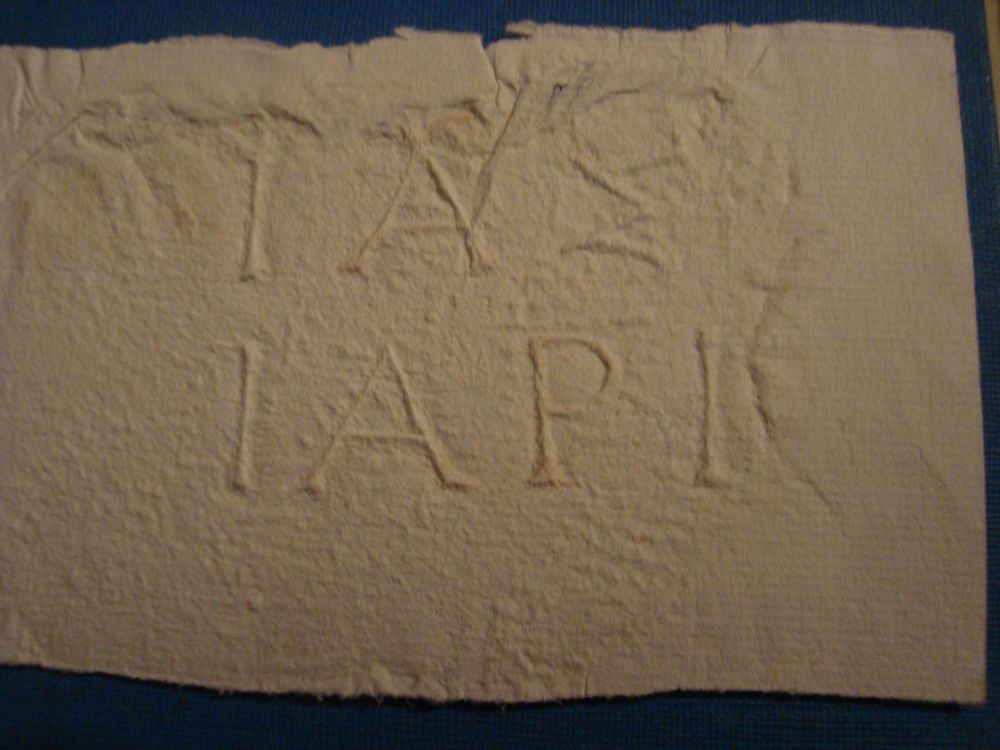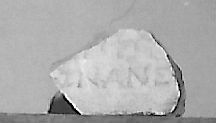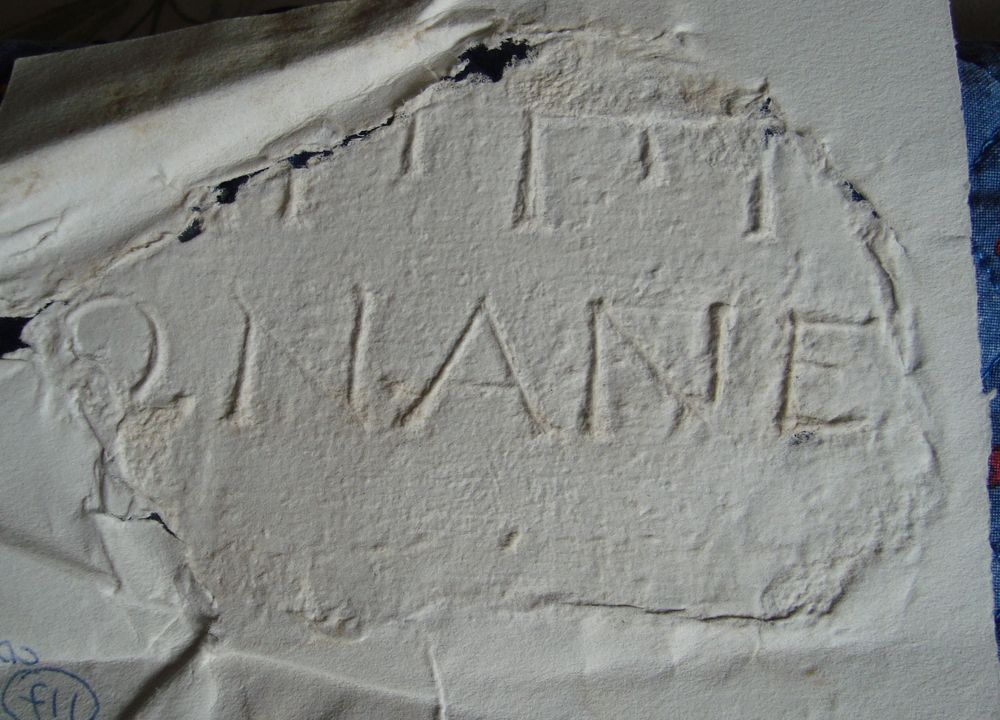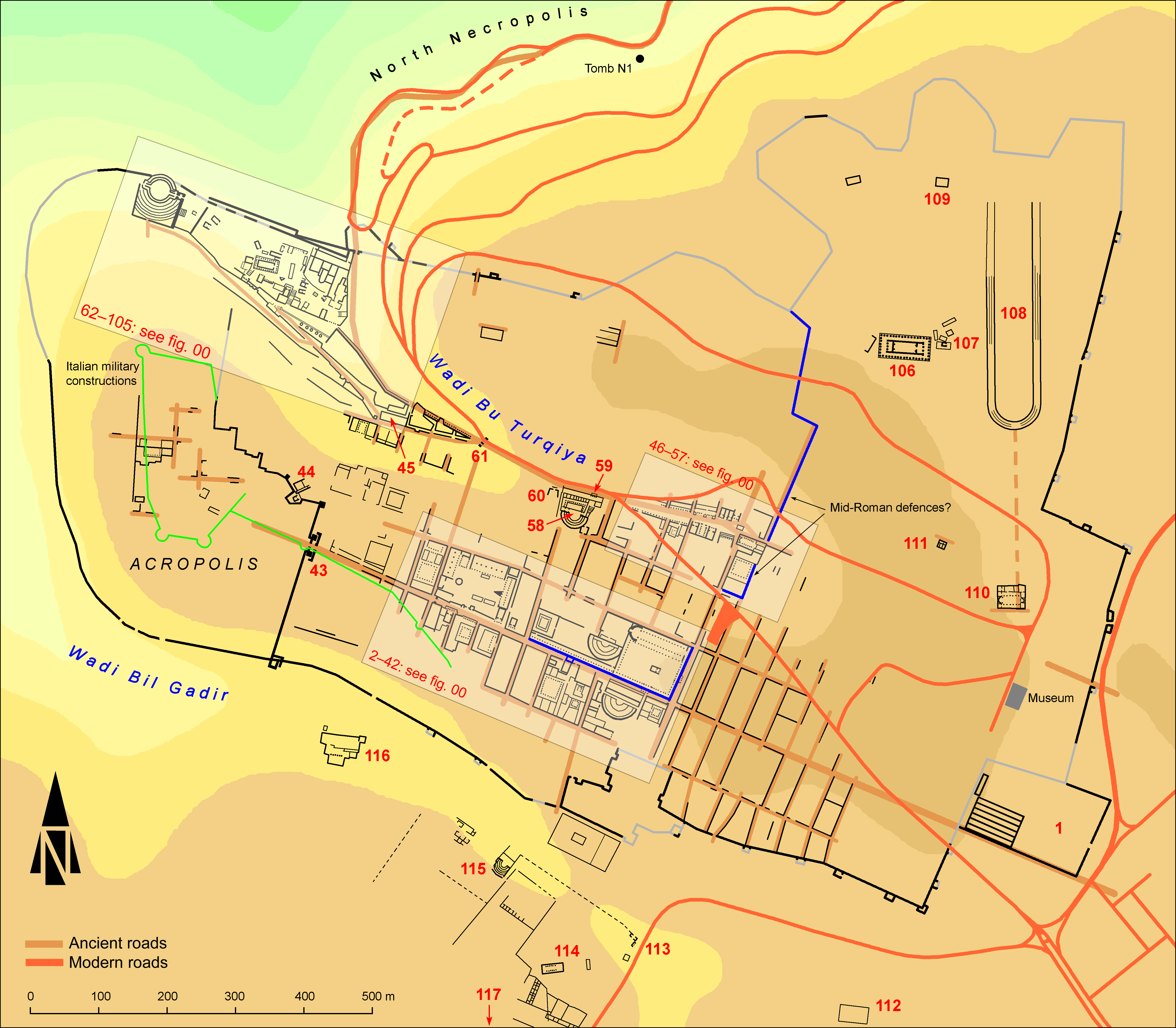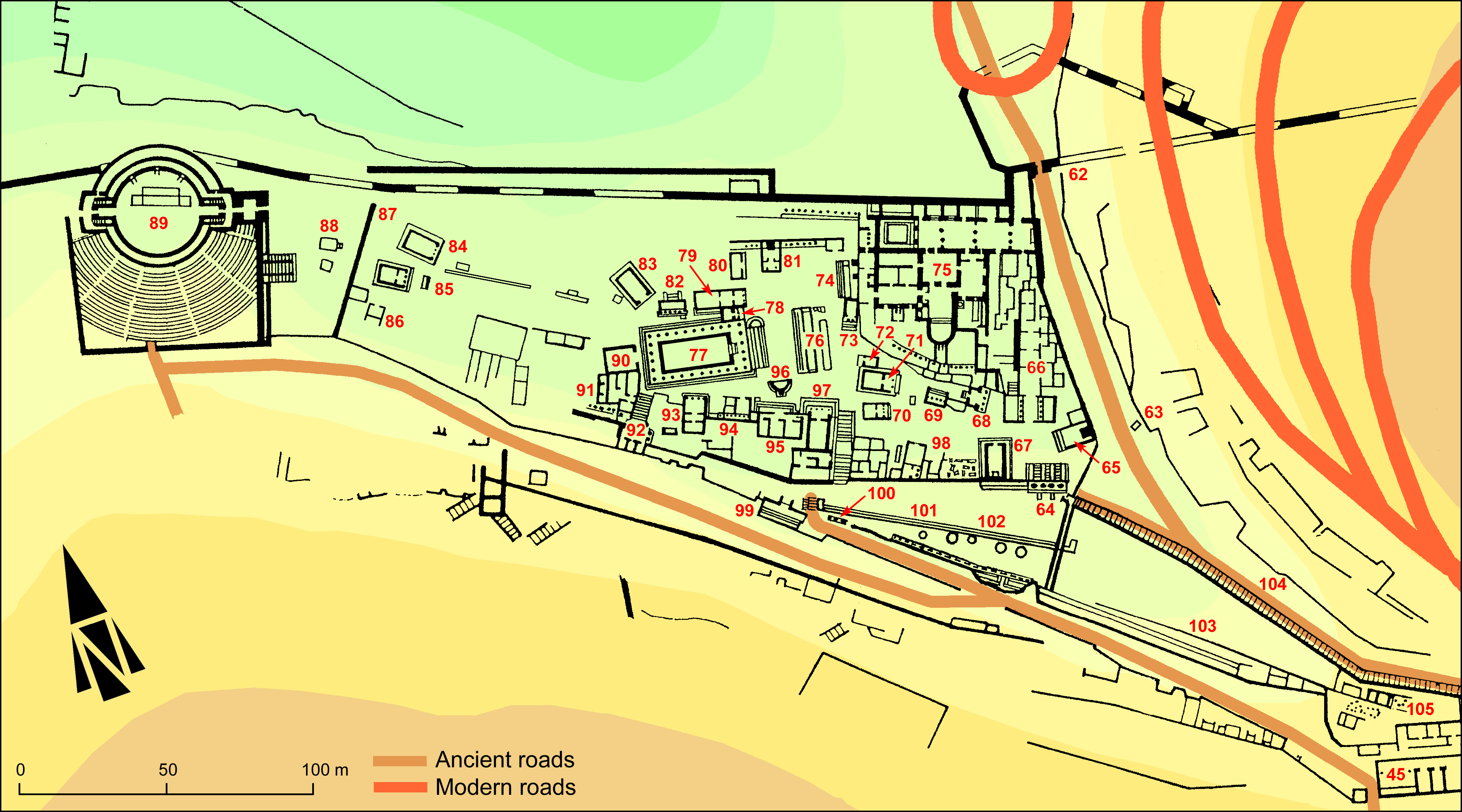EpiDoc XML:
IGCyr0952002
Trismegistos ID:
738461
Source description
Support: Three joining fragments from an uncomplete small white marble plain base with a circular hole near the left fore angle of the upper side; when found, the base was already broken off at right: ; (w: 0.295 × h: 0.08 × d: 0.27; fragment a alone is wide 0.22 at back).
Layout: Inscribed on front face in two lines.
Letters: 0.018; thickening ends of letters rather than real serifs; slanting sigma.
Date: Between 290 and 260 BC (Rosamilia) (lettering).
Findspot: Found on August 24th, 1925 at Cyrene ➚: Sanctuary of Apollo, East of the Altar of Apollo, between it and the vestiges of the oldest altar.
Place of origin: Findspot.
Last recorded location: Cyrene Museum, 149, 416, 313. Fragment a only seen by Morelli in 1960 in Shahat: Cyrene Museum. All three fragments seen by C. Dobias-Lalou in 1979 in the same museum.
Text constituted from: Transcription from the stone (CDL).
Bibliography
Oliverio 1927, p. 157 (mention) Oliverio , XI.87 and Anti , I.27, whence Pugliese Carratelli, SECir, 29 and fragment a again Morelli, SECir, 247 (as unpublished); IGCyr 095200 ➚ and fragment b again IGCyr 128400 ➚(as unpublished). Cf. Stucchi 1992, p. 62 (discovery); Rosamilia 2023, p. 102.
Text
Apparatus
1: Ἵππι[ος]: Ἱππι[---] SECir; Ἱππί[α] Fraser – Matthews 1987 J. Reynold's reading.
French translation
Iasôn fils d'Hippis a consacré (scil. ce monument) durant sa prêtrise.
English translation
Iason son of Hippis dedicated (scil. this monument) while being priest.
Italian translation
Iason figlio di Hippis ha dedicato (scil. questo monumento) quando era sacerdote.
Commentary
The publication of this inscription has a long and complicated history. It was first published by Pugliese Carratelli in the first part of SECir from a drawing of Oliverio's, which is printed there. Pugliese Carratelli was not able to find in the epigraphic storeroom of the Museum the stone, which had in the meantime been broken into three fragments, each of them bearing a different inventory number. Moreover, Morelli published fragment a separately in the third part of SECir without identifying it. Dobias-Lalou in her turn identified fragment a as belonging to this inscription, which became IGCyr095200 and published fragment c separately as unpublished as IGCyr128400. Rosamilia detected the error and later on Dobias-Lalou found out that the small fragment b, which she had left unpublished, also belonged to the stone and filled the gap.
In Fraser – Matthews 1987, the name is restored as Ἱππίας and the date is given as 'perhaps third century BC'. However, the restoration of one single letter at the end of l. 1 seems too short and the lettering is clearly earlier.
If Rosamilia 2023 is right in dating the priesthood of Iason son of Hippis during Magas' period, it is no longer plausible that he was the man mentioned as [---]ων son of Hippis, mentioned, probably as a military officer, in IGCyr0091002, as proposed in the first edition of IGCyr.
Even if the god's name is not mentioned, it may be inferred from the findspot that the monument was dedicated to Apollo.
CC BY-NC-SA 4.0 Deed Attribution-NonCommercial-ShareAlike 4.0 International License.
All citation, reuse or distribution of this work must contain a link back to DOI: https://doi.org/10.60760/unibo/igcyrgvcyr2 and the filename (IGCyr000000 or GVCyr000), as well as the year of consultation.

